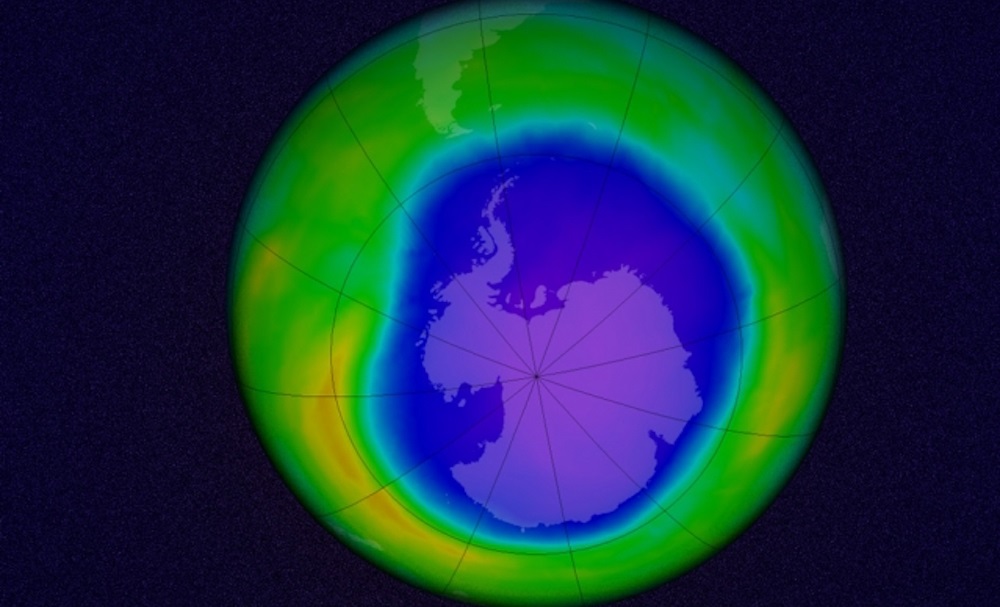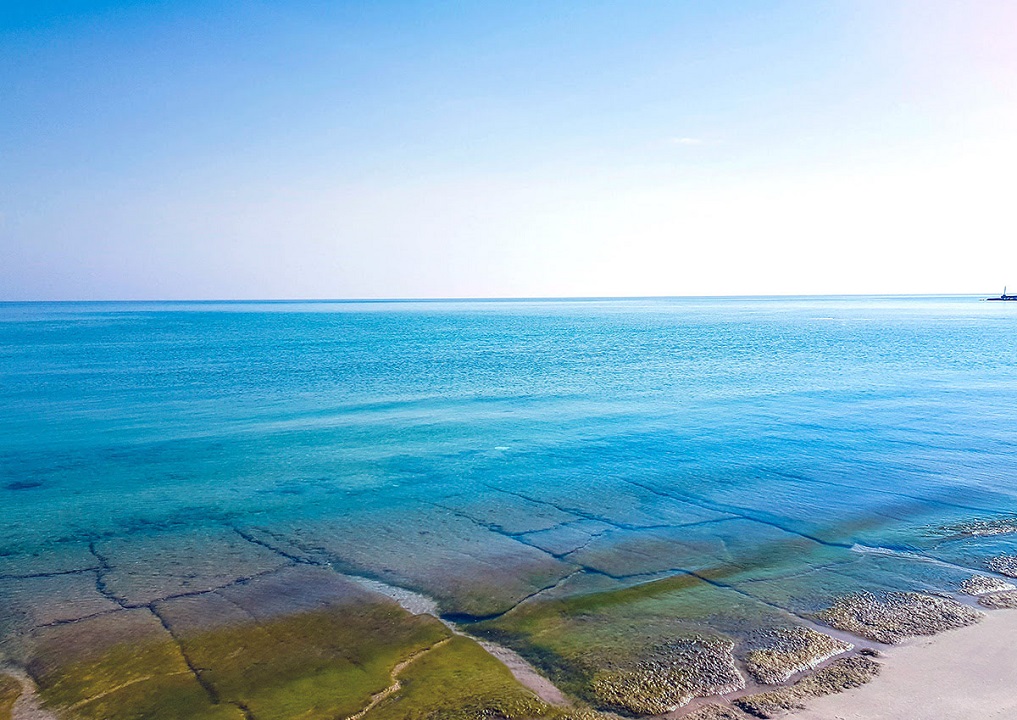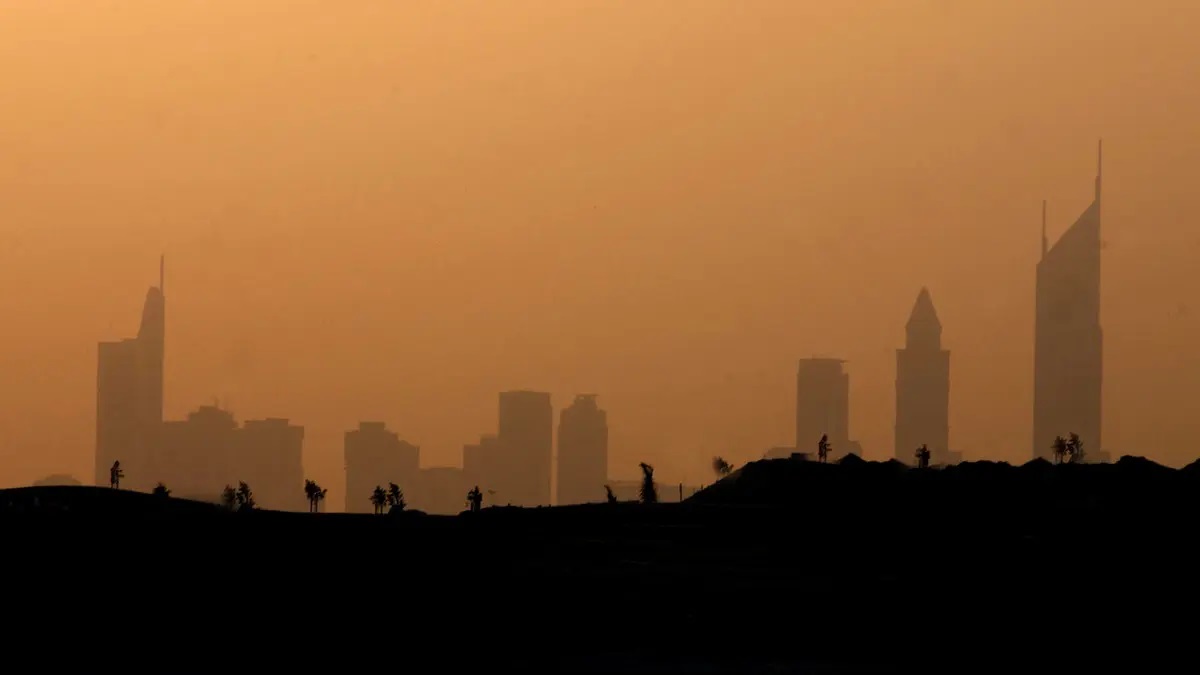By History.com Editors. In the scientific journal Nature on May 16, 1985, three scientists from the British Antarctic Survey announce their detection of abnormally low levels of ozone over the South Pole. Their discovery, commonly known as the Ozone Hole, became a palpable example of mankind’s ability to damage the Earth’s atmosphere as well asContinue reading “History.com: This Day In History (May 16-1985): Discovery of Ozone Hole announced”
Tag Archives: Environment
Al Mayadeen: Environmental destruction in Gaza yet to make a dent in global conscience
By F.M. Shakil. The situation in Gaza is dire, and environmental organizations are showing concerns regarding the catastrophic impacts on Gaza’s ecosystems and biodiversity. The atrocities committed by Israeli forces in Gaza bear resemblance to the relentless bombardment of German cities by coalition forces during World War II. In less than seven weeks, from OctoberContinue reading “Al Mayadeen: Environmental destruction in Gaza yet to make a dent in global conscience”
Northeastern Global News: The clock is ticking. Can ‘scientific diplomacy’ save the world’s hottest sea?
By Cynthia McCormick Hibbert. Already the world’s hottest coastal environment in the summer, the Persian Gulf continues to heat at a breathtaking pace. “The Middle East is one of the worst areas in terms of how rapidly temperature change is occurring,” says Brian Helmuth, Northeastern professor of marine and environmental science. In the past, geopoliticalContinue reading “Northeastern Global News: The clock is ticking. Can ‘scientific diplomacy’ save the world’s hottest sea?”
Bangladesh Sangbad Sangstha: Syria fishermen despair at water loss, river pollution
By BSS/AFP. Around war-torn Syria’s biggest freshwater dam reservoir, fishermen say their catch is now a fraction of what it used to be as environmental pressures have decimated aquatic life. Ismail Hilal, 50, sat on the hull of his rowboat — now lodged firmly on the shores of Lake Assad — as gentle waves washedContinue reading “Bangladesh Sangbad Sangstha: Syria fishermen despair at water loss, river pollution”
Asharq Al-Awsat: Water in Syria: Today’s Thirst, Tomorrow’s Disasters
By Fayez Sara. Syria is not the only country facing water scarcity in the eastern Mediterranean. This is a prevailing situation across the region’s countries (excluding Türkiye), as each country faces varying degrees of issues related to water. However, the Syrian problems in this regard are the most severe and challenging, not only because ofContinue reading “Asharq Al-Awsat: Water in Syria: Today’s Thirst, Tomorrow’s Disasters”
Deutsche Welle: How prepared is the Middle East for extreme heat waves?
By Cathrin Schaer. As intense heat becomes more frequent, the Middle East will see a rise in heat-related deaths. Even though the region lags in public health planning, experts say it has a lot to teach us about surviving extreme weather. When the thermometer threatens to rise over a baking 50 degrees Celsius (122 Fahrenheit)Continue reading “Deutsche Welle: How prepared is the Middle East for extreme heat waves?”
History.com: This Day In History (May 18-1980): Mount St. Helens erupts
By History.com Editors. At 8:32 a.m. PDT on May 18, 1980, Mount St. Helens, a volcanic peak in southwestern Washington, suffers a massive eruption, killing 57 people and devastating some 210 square miles of wilderness. Called Louwala-Clough, or “the Smoking Mountain,” by Native Americans, Mount St. Helens is located in the Cascade Range and stood 9,680Continue reading “History.com: This Day In History (May 18-1980): Mount St. Helens erupts”
Arab Reform Initiative: Lebanon’s Unregulated Forests: How Tragedies Can Ignite Homegrown Transformations
By Sammy Kayed. One could argue that Akkar, more than any other region in Lebanon, epitomizes both the country’s incredible natural heritage and its spiraling economic and political crises. While Lebanon sets records for the loss of purchasing power, rapid financial collapse, social injustice, and frequency of government deadlock, Akkar regularly emerges as the mostContinue reading “Arab Reform Initiative: Lebanon’s Unregulated Forests: How Tragedies Can Ignite Homegrown Transformations”
EU Neighbours: Med4Waste to support Akkar Al-Atika in Lebanon to work on a more sustainable waste management model
By EU Neighbours staff. Akkar Al-Atika is a town located in the north of Lebanon interested in developing a waste management plan that leads them to a more sustainable waste management system. With household waste production at around 12 tonnes per day, the town is currently reliant on a private company to manage their waste, whichContinue reading “EU Neighbours: Med4Waste to support Akkar Al-Atika in Lebanon to work on a more sustainable waste management model”
RFI: After drought, winter rains revive Iraq’s famed marshlands
By Chibayish Marshes (AFP). Black buffaloes wade through the waters of Iraq’s Mesopotamian marshes, leisurely chewing on reeds. After years of drought, winter rains have brought some respite to herders and livestock in the famous wetlands. Listed as a UNESCO World Heritage Site, the marshes were parched and dusty last summer by drought in theContinue reading “RFI: After drought, winter rains revive Iraq’s famed marshlands”










